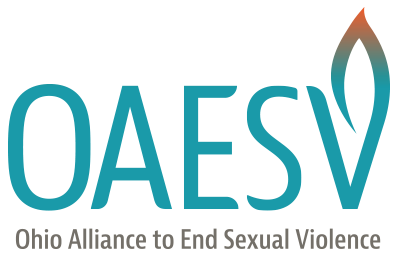Joint Statement – THE TIME IS NOW: Victim-Service Agencies in Ohio Need Government Officials to Step Up and Provide Funding
Ohio Alliance to End Sexual Violence, Ohio Crime Victims Justice Center, Ohio Domestic Violence Center, Ohio Network of Children’s Advocacy Centers, and Ohio Victim Witness Association
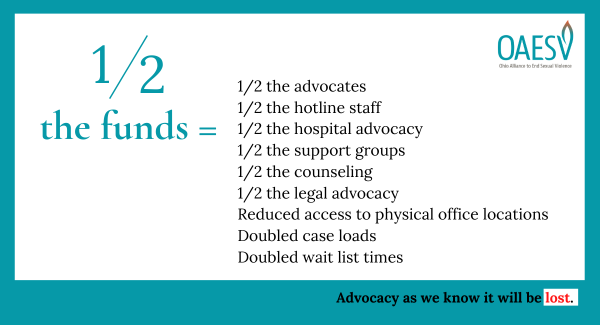 In an era of reduced taxes and efforts to slim down federal agencies, the Victims of Crime Act (VOCA) grant should have been a conflict-free solution to funding the non-profits our government relies on to support crime victims. Developed by the Reagan Administration, the VOCA fund is comprised predominately from federal conviction fines. Over the past three decades, the federal government has distributed VOCA funds to the states, who determine funding for individual social service providers.
In an era of reduced taxes and efforts to slim down federal agencies, the Victims of Crime Act (VOCA) grant should have been a conflict-free solution to funding the non-profits our government relies on to support crime victims. Developed by the Reagan Administration, the VOCA fund is comprised predominately from federal conviction fines. Over the past three decades, the federal government has distributed VOCA funds to the states, who determine funding for individual social service providers.
In Ohio, VOCA caused the development of crime victim rights agencies, domestic violence shelters and advocacy programs, rape crisis centers, and culturally-specific providers. VOCA also provided means for law enforcement agencies, hospitals, prosecutor offices, and others to hire employees specifically dedicated to serving victims. Ohio’s robust crime victim service structure relies nearly entirely on VOCA funding.
The reliance on VOCA is logical – governments historically rely on non-profits to fill voids for necessary constituent social services. Non-profit staff have local community knowledge and highly developed content area expertise, both of which allow for more effective and personalized services. It is also significantly less expensive for governments to fund local providers than to replicate such services across their full jurisdictions.
Unfortunately, the VOCA grant did such an effective job for so many years filling the need for crime victim services in Ohio, that our state and local governments did not need to cultivate equivalent funding streams. Yet, without creating supportive funding, Ohio created increased demand for VOCA-funded services. For example, Ohio lawmakers have put strong emphasis on processing sexual assault forensic examination kits in the past several years, increasing the number of sexual violence survivors involved in prosecutions, thereby increasing the demand for community-based rape crisis advocacy. Similarly, in 2017, Ohio voters passed Marsy’s Law, increasing the demand for advocates to ensure that the judicial system complies with expanded victim rights. VOCA funds the positions necessary for compliance. Further, the executive and legislative branches increased efforts to end human trafficking, further expanding advocacy demand.
Both the federal and state government have established reliance on and satisfaction with non-profit crime victim services, and now the Ohio government has increased reliance on these services. But this year, Ohio’s VOCA allocation was cut by more than $20 million. Government officials are telling recipients to find other funding streams to rely on. This push to rely on other funding misses a fundamental reality – the government relies on us to provide essential victim services, and now they want those services for free. VOCA-funded programs provide, among other things:
- Crisis Hotlines
- Counseling/Therapy for Survivors
- Transportation and emergency funds for survivors
- Court appointed special advocates for children
- Accessibility for persons with disabilities
- Protection order assistance
- Accompaniment to law enforcement interviews, prosecution meetings, pretrial conferences, trial, sentencing, and parole board hearings
- Coordinating or offering interpreting services
- Support for child forensic interviews
- Accompaniment and advocacy during post-sexual violence forensic medical examination and evidence collection
- Emergency deployment to critical incidents/scenes of mass victimization
The current reality facing victim service providers is bleak. The 2020 VOCA cuts exceeded even the wildest of speculations from service providers that monitor VOCA deposits, disbursements, and forecasts. This cut represents a historically abrupt shift in federal values – a reduction in prosecutions and fine collections, to the detriment of victims all over the country.
Effective immediately, whole counties lost access to rape crisis services, prosecuting attorneys found themselves without advocacy staff needed to comply with Marsy’s Law, and some domestic violence service providers began reducing their staffs. Agencies that work with victims across government systems have already terminated advocates. Free standing, community-based non-profit agencies have lost an average of one-third VOCA funds, which amounts to as much as 90 percent of funding for some programs.
Crime impacts everyone – no one intends on being a victim, and any one of us can be impacted. One dual rape crisis and domestic violence agency reports that with the looming staffing cuts, full-time employees will have to take multiple overnight call shifts per week, limiting time to recuperate sufficiently and to take on more cases. Rape crisis and domestic violence programs alike report increasing demand amid the need to lay off staff, meaning increased wait times for survivors needing emergency shelter, hospital advocacy, and information. Survivors with questions about the criminal justice process are losing advocates within criminal justice systems. Support is withering as the demand surges.
We must ask our government actors:
- Who will accompany survivors to the hospital after an act of sexual violence?
- Where do we send domestic violence survivors when our reduced-capacity shelter is full?
- Which staff from county prosecution agencies will take on victim advocacy responsibilities in addition to their other duties?
- Who will support families and children during sexual abuse forensic interviews?
- Who will work with victims to make sure Marsy’s Law rights are enforced?
- Who will support survivors as they apply for crime victim compensation?
- Who will help survivors locate essential resources like food, shelter, and bedding in the wake of a violent crime that has cut off access?
- Who will provide emergency services after a mass crime?
- Who will accompany survivors to criminal trials?
- Who will support survivors in their pursuit of civil protection orders?
We, as Ohioans, deserve the level of crime victim services that the government knows we need and promises we will get. We deserve fully funded victim services, fully staffed agencies, and rested and rejuvenated staff capable of providing holistic advocacy. Our lawmakers must not forget that we are essential – the government and its constituents need our services. The federal government must not effectively eliminate services it cultivated and has relied on for decades. The state government must understand what will be lost if we close our doors. Local governments must increase support. All levels of government must act expeditiously to ensure our agencies stay open.
Signed,
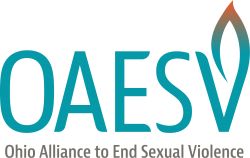

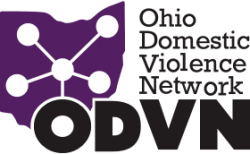

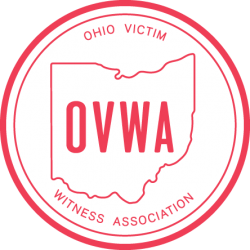 Click here to watch the recording of the recent Facebook Live during which leaders from the listed organizations discuss the devastating impact of these funding cuts.
Click here to watch the recording of the recent Facebook Live during which leaders from the listed organizations discuss the devastating impact of these funding cuts.
